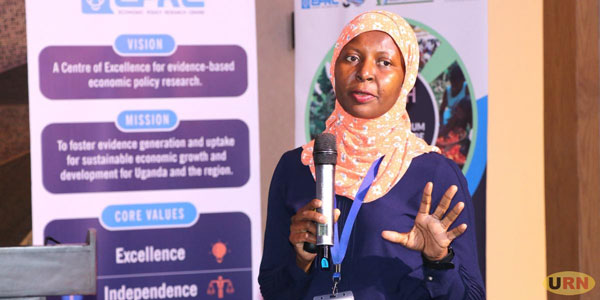
Kampala, Uganda | THE INDEPENDENT | Findings of a study released by the Economic Policy Research Center (EPRC) show that there is almost the same level of food insecurity in households that are engaged in sugarcane farming and those that are not.
Dr. Madina Guloba, a Senior Research Fellow at the center, says that they surveyed over seventeen thousand households in twelve sugarcane growing districts in Buganda, Bunyoro, and Busoga regions where they found only one in every four households to be food secure.
On further inquiry, she says they found households that don’t grow sugarcane to be slightly more food insecure than their counterparts. The researchers who aimed to among others assess whether a decision by farmers to grow cane, a cash crop affects household food security and nutrition outcomes used scores to determine how each of the categories was doing.
While they found no major differences in the variety of foods consumed by both groups, non-growers scored 7.8, meaning they were more insecure than 6.1 for growers. When they assessed whether households had enough food to last them more than a month, on a score of 0 to 12, growers scored higher at 10.3 against 9.1 for the non-growers.
With these findings, Guloba says government and industry players should look into innovations that intensify food production, especially in places like Bunyoro where insecurity was highest with only one in ten households found to be secure. Comparatively, the survey shows half of the households in Buganda were secure and two in every ten households in Busoga.
Now, commenting on these findings, Moses Kalyegira the Masindi district commercial officer said the food and nutrition security situation in Bunyoro could get worse as more and more land is being put under sugarcane growing.
He proposed the need for by-laws limiting people without enough land from participating in sugar plantation, an idea that was supported by Paul Warube, the Iganga district Agriculture Officer who further revealed that in Busoga, smallholder farmers go an extra mile to hire land for cane farming and ignore food crops leading to insecurity and challenges related with poor nutrition.
However, while local leaders are pushing for more regulation as the solution, formally pushed for regulations in the area of sugar are largely not biting. In fact, according to Jim Kabeho, the Chairman of Uganda Sugar Manufacturers Association, the sugar industry is more aligned to the trade ministry than the agriculture ministry which would be paying keen attention to issues such as food security.
For him, farmers need more awareness than regulations pointing out that t the sugar policy passed in 2020 has not been implemented. For him, with no proper regulation, food insecurity will not be solved.
On his part, however, Amos Lugolobi, the State Minister of Finance in charge of planning acknowledged that regulating the sugar industry has been thrown to millers saying they will speak to the cabinet once gain proper policy direction.
*****
URN
 The Independent Uganda: You get the Truth we Pay the Price
The Independent Uganda: You get the Truth we Pay the Price





